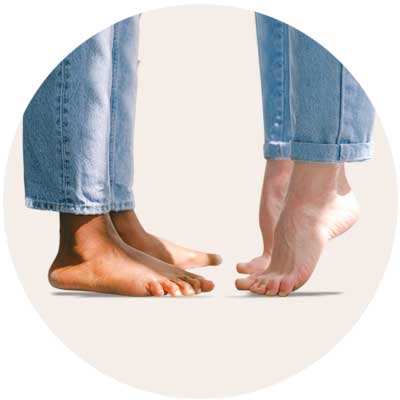What is dry skin on the hands?
The location of the hands and feet on the body mean that the skin here can be naturally, physiologically very dry. This is partly due to the fact that blood circulation and, therefore skin nourishment, is weaker at the extremities of the body, which are the areas furthest from the heart. Individuals with dry skin also often aggravate their condition by using water and detergents, further increasing skin inflammation and roughness. Individuals with dry skin also often aggravate their condition by using detergents and too much water, further increasing skin inflammation and roughness.
What are the causes of dry skin on hands?
One of the key reasons for dry skin on the hands and feet is their position. Being further away from the heart, they often suffer from a lack of nourishment due to poorer blood circulation. Dry skin on the hands can also be caused by a change in, or deficiency of, the skin’s protective barrier. This barrier is made of proteins and lipids that are meant to bind with and retain water, respectively. However, the natural lipids in this barrier can be dissolved by, for example, the regular use of moisturizers that contain emulsifiers, thus worsening dry skin.
How to cure dry skin on hands?
In the case of slightly dry skin, use Eudermic Cleansing Base to cleanse the hands and body. Eudermic Washing Base is non-foaming which helps to maintain skin softness.
In addition to the above, use Nourishing Cream after washing and drying. Emollient Cream is rich in vegetable butters, which help to soften the skin and make it smooth to the touch.
If the skin of the hands is very dry, rough and perhaps reddened, use Extreme Emollient Ointment after washing and drying. Extreme Emollient Ointment retains water in the stratum corneum and makes the hands smooth and velvety soft.

To avoid dry skin, is it necessary to drink a lot of water?
Drinking a lot of water does not necessarily mean hydrated, moisturized skin. The human body is made up of 75% water, so it’s not something the skin is lacking. Drinking more water than the body needs can actually put a strain on the organs responsible for urine production and collection. The immediate result is a continuous need to urinate. In the longer run, drinking excess water also causes water retention, especially on the abdomen, thighs and buttocks. The swelling caused by water retention can cause edema, or the accumulation of fluid in the interstitial spaces of the body. This can contribute to or worsen cellulite (panniculitis adiposa).














